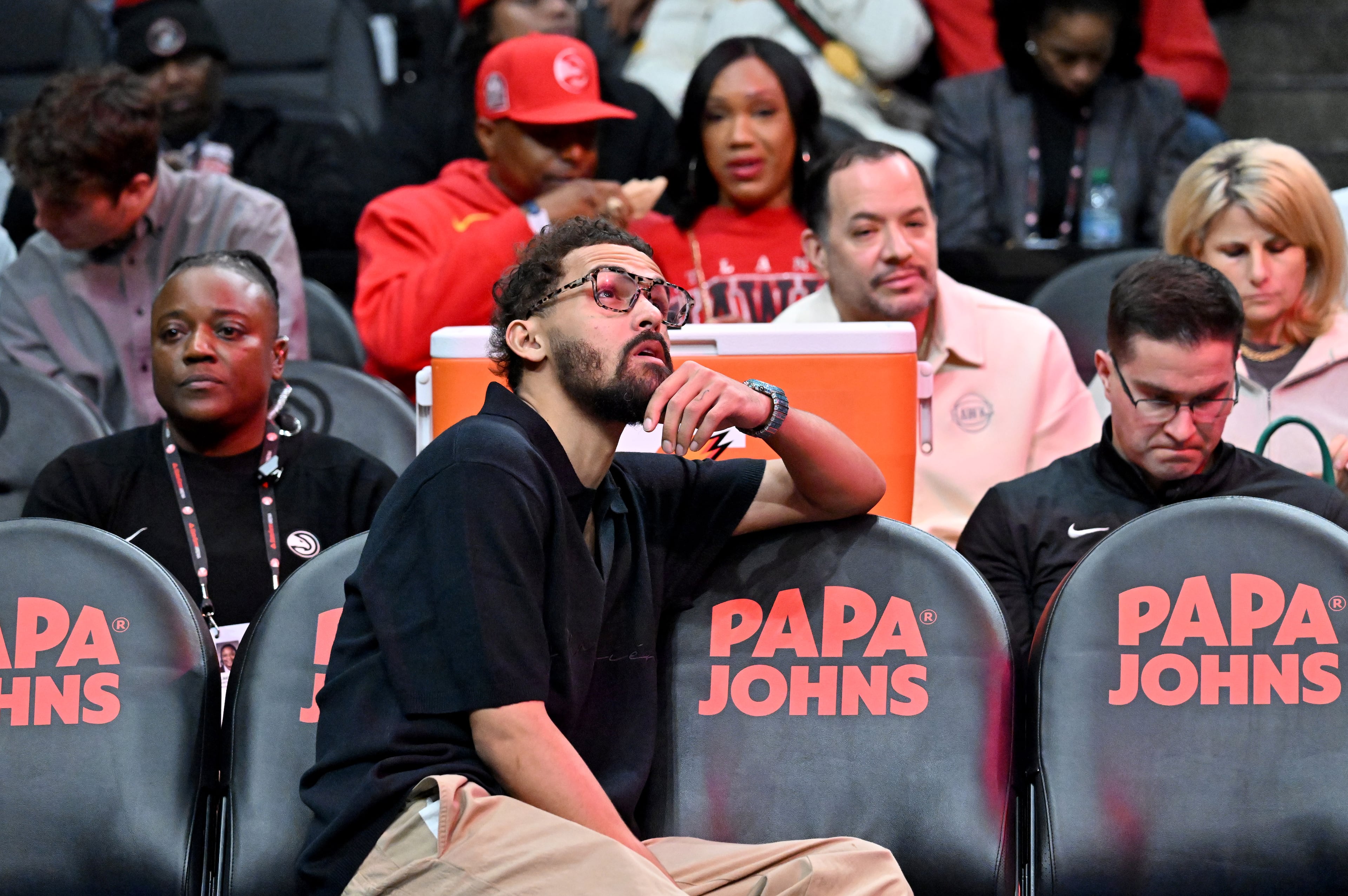5 reasons why the Hawks won’t be as good
Neil Paine, who used to work for the Hawks, wrote a preview last week for the data-driven website FiveThirtyEight. Its headline: "The Hawks will be mostly the same, but worse."
I’d agree with the latter part: They will be worse. I’d quibble with the former: They won’t be the same, either. My reasoning, such as it is:
1. Last season was a harmonic convergence, and those don't happen on an annual basis. The NBA East was a mess. The Cavaliers hadn't adjusted to having LeBron. (They were 19-20 on Jan. 13.) The Heat hadn't adjusted to not having LeBron. The Bulls' Derrick Rose was hurt yet again. The Wizards hadn't consolidated the gains of the 2014 playoffs. The Pacers were without Paul George. The Bucks were without Jabari Parker. As of New Year's Day, the Raptors held the conference's best record — and they were nothing special. Some team was bound to fill the vacuum. To their credit, the Hawks became that team. (At least in the regular season.)
2. That team, however, has changed. It sounds like double-talk to suggest that a team not reliant on any one man will be diminished because it lost the one starter who didn't make the All-Star squad. It's also true. The Hawks have no player who can do all the things DeMarre Carroll could. Thabo Sefolosha can defend, but can't score. Tim Hardaway Jr. can score but can't defend. Kent Bazemore isn't big enough — he's 6-foot-5 — to be a small forward. The Hawks got really good because their starting five was without seams. With Carroll gone to Toronto, those seams will show — just as they did in the playoffs, when opponents jammed Kyle Korver and gummed up the works. The Hawks aren't talented enough to win big if everything's not clicking. Minus Carroll, it's hard to imagine this team clicking the way it did last winter.
3. The organization has changed, too. The Hawks have new ownership, which is good. They also have a new chain of command, which might be less good. Say what you will about the departed Danny Ferry, but he was a superb general manager. Mike Budenholzer remains a fine coach, but he's also the president of basketball operations, a job for which he may or may not be qualified. The GM is Wes Wilcox, who was Ferry's deputy. Does anyone believe a Budenholzer/Wilcox tandem trumps Ferry/Budenholzer? Was anyone impressed with the new duo's handling of the draft, which saw the Hawks turn the 15th pick of 2015 into Hardaway, who'd been the 24th pick of 2013?
4. The Hawks have gotten a bit bigger, which isn't to say better. Budenholzer/Wilcox did ply Tiago Splitter from the Spurs. (Who, to be fair, were dumping salary to accommodate LaMarcus Aldridge.) There's thought that the presence of Splitter, who's 6-11, will allow the Hawks — who were adept at everything last season except rebounding — to deploy Al Horford more at power forward and bump Paul Millsap to small forward. Trouble is, Horford is an All-Star center who wouldn't be an All-Star power forward; Millsap is an All-Star PF who wouldn't be an All-Star SF. And Splitter doesn't fit the Hawks' pace-and-space design: He's not a shooter and not a passer. He'll help against what's commonly called a "true" center, but there aren't many of those.
5. The Hawks have also gotten older. Assuming Sefolosha becomes the No. 1 small forward, the average age of the starting five will be 30 years and 4 months. (The youngest starter is Jeff Teague, who's older than Kevin Durant.) Writes Paine: "Our projections call for declines from practically all of the players who powered Atlanta's unexpected rise, particularly Paul Millsap and Kyle Korver."
That sobering assessment brings us back to the beginning: The Hawks won’t win 60 games again and mightn’t win 50. (FiveThirtyEight has them going 45-37, which would mark a 25 percent decline.) That doesn’t mean they’ll be terrible — heck, they might even repeat as division winners — but they won’t be as good. And with an aging core and with Horford set to become a free agent and with no Ferry to procure personnel, time mightn’t be on their side.



